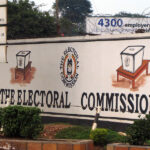The State Minister of Finance incharge of Investment and Privatization Hon Evelyn Anite has reignited the debate over corruption within Uganda’s ruling National Resistance Movement (NRM), calling out unnamed officials in a thinly veiled attack that has sent shockwaves through the party.
Her remarks have drawn attention to allegations that some of the most corrupt figures within the party are defectors from the opposition, including high-ranking officials.
Instead of focusing solely on the friction between Anite and specific figures, this story highlights the broader implications of her remarks on internal NRM dynamics and the public’s growing frustration with unaddressed corruption. Her comments come at a time when trust in leadership is dwindling, and the 2026 elections are approaching fast. Could Anite’s outburst signal an emerging factional split within the NRM, driven by concerns over governance and transparency?
The social media firestorm following Anite’s post reflects mounting pressure for transparency in Uganda’s political elite, with citizens demanding accountability. By framing this controversy in the context of wider internal party struggles, the story takes a more structural look at how corruption allegations continue to erode public trust, not just in individual leaders but in the party’s integrity as a whole.
Public response to Anite’s indirect accusations has been intense, with many calling for the names of the alleged corrupt officials to be revealed. This puts Anite, as well as the NRM leadership, in a precarious position, with the upcoming elections hanging in the balance. The unfolding drama could mark the beginning of a larger reckoning within the NRM as citizens and reform-minded members push back against long-standing impunity.



